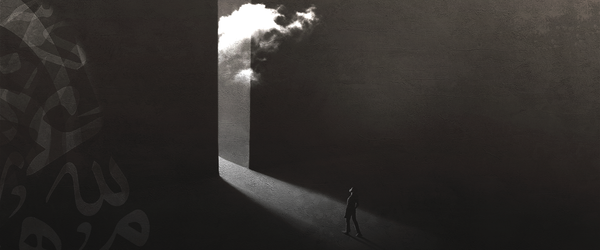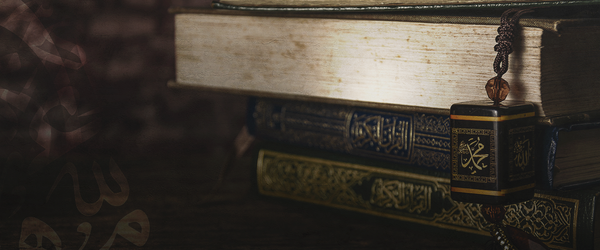
It is self-evident that human beings do not possess unrestricted freedom to choose every aspect of reality that influences their existence. Some factors are not within their control yet significantly affect how their lives play out. For example, human beings do not have a choice in selecting their parents, the country they are born in, and the culture they grow up in. Furthermore, their will and choice are restricted by the manifestation of Allāh’s ﷻ Will in the laws of the universe. For example, if an individual attempts to lift an object that is beyond the capability of his body he will helplessly fail despite his best efforts. The various groups and scholars and online islamic arabic studies all agree on the existence of such elements that are beyond human control.
On the contrary, voluntary actions are those that occur in accordance with the individual’s free choice. Al-Imām al-Bayāḍī (d. 1044H), in his book, Ishārāt al-Marām concludes that five elements are required for the occurrence of a voluntary action: knowledge (‘ilm), will (irādah), ability (qudrah), resolve (qaṣd), and creation (ījād). Ibn Ḥussayn al-Bayāḍī, Aḥmad. Ishārāt al-Marām Min ‘Ibarāt al-Imām, 208. Lebanon: 2007, Dar al-Kutub al-Ilmiyah.
Knowledge entails the occurrence of the thought to perform the action in the mind of the individual. For actions that are not random, knowledge also entails an understanding of the benefits and/or repercussions of performing an action. For example, someone who prays knows that the prayer has been made obligatory by Allāh. He understands that its performance will be rewarded, while its abandonment will be punished. Will is the capacity within man, created by Allāh ﷻ, with which he resolves to either perform an action or not. Therefore, the resolve can be defined as the choice the individual makes using his will. This will be used interchangeably with the term “choice” for the remainder of the article. Ability is an attribute that produces an effect in accordance with the will.Ibn Muḥammad al-Jurjānī, ‘Alī. Sharḥ al-Mawāqif, 2nd Edition, Vol 6: 83. Lebanon: 2012, Dar al-Kutub al-Ilmiyah Finally, creation is to bring the action from non-existence into existence.Other theologians have presented slightly varying versions of the elements that precede a voluntary action, and some have defined these elements differently as well. Some scholars have used the term ability (qudrah) as synonymous with will (iradāh). Others have used the term will and resolve interchangeably. Therefore some of the differences between the positions of certain scholars are semantics resulting from differences in nomenclature, while others are not
There is no contention regarding the source of mankind’s will (irādah) and ability (qudrah). They are characteristics of mankind that are created within them by Allāh ﷻ. There is, however, contention in determining the source of origination of voluntary actions. How is the action created (ījād)? What is the individual’s role in its creation? The following discussion article The Origin of Human Action through accredited online islamic studies will explore the views of non-Sunni traditions on this issue followed by the Sunni response. Afterward it will discuss the various opinions within the Sunni tradition on this problem in other islamic studies programs.
The Jabariyyah contend that there is no real difference between voluntary and involuntary actions.This group, al-Jabariyyah, was introduced in part 1 of this paper. This is because, as mentioned in the first part of this article, due to Allāh’s ﷻ foreknowledge of the occurrence of everything, man is compelled in the performance of his voluntary actions, just as he is compelled in the performance of involuntary actions. Therefore, they argue that the individual does not possess a will with which he can choose nor an ability with which the action can be performed. Although the individual does experience control over the choice to perform his actions, this choice is merely an illusion.
The Qadariyyah, on the other hand, affirm that Allāh ﷻ has created within the individual the ability to perform actions, which is integral to discussing the best Islamic studies programs in the world. This group, al-Qadariyyah, was introduced in part 1 of this paper. The most famous school of thought that adheres to the belief of the Qadariyyah is the Mu‘tazilī school. They argue that accountability can only be justified if man has autonomy over his own actions.
Hence, it is necessary for the action to emerge into existence, i.e. be created, by his own ability. This means that the only power that affects (ta’thīr) the action’s creation is the ability of man. Moreover, if one were to claim that the actions of man are created by Allāh ﷻ, this would mean that the actions of evil committed by human beings are His creation, thus attributing evil to Allāh ﷻ. The fifth-century Mu‘tazilī theologian, Qāḍī ‘Abd al-Jabbār (d. 415H) argues this point in his book Sharḥ al-Usūl al-Khamsah, “One of the proofs that indicate towards the impossibility of Allāh ﷻ being the creator of the actions of mankind (‘ibād) is that from amongst the actions of mankind are injustice and oppression. Therefore, if Allāh ﷻ is the creator of the actions of mankind, it would follow that He is unjust and oppressive. He is far exalted from that.” Ibn Aḥmad, ‘Abd al-Jabbar. Sharḥ al-Usūl al-Khamsah, Third ed, 345. Cairo: 1996, مكتبة وهبة Thus, the Mu‘tazilah believe that by affirming the creation of voluntary actions to mankind both the problem of compulsion in accountability and attributing evil to Allāh ﷻ can be solved. To them, the creation of the action takes place by the divinely-endowed ability (qudrah) of man.
“Whosoever wishes let him believe and whosoever wishes let him disbelieve.” Qur’ān 18:29
Regarding the second argument put forth by the Mu‘tazilah, Ahl al-Sunnah argue that it is not the creation of evil that is evil but rather the choice to perform it. This is because Allāh ﷻ only creates the action of evil if the individual chooses to perform it. Hence, being the creator of an evil action does not classify Allāh ﷻ as evil. Furthermore, the Sunni tradition does not regard objective evil as a concept that exists independent of Allāh ﷻ. Rather, objective evil is that which Allāh has willed to be evil. This is agreed upon by the Ash‘arī and Māturīdī scholars. However, there is a difference of opinion between the two schools on whether it is rationally possible for Allāh ﷻ to perform actions that are evil. While the Ash‘arī school believes it is possible, the Māturīdī school argues that due to Allāh ﷻ being all-Wise it is not. They also disagree on whether the intellect is capable of determining whether an action is good or evil independent of revelation. The Māturīdī scholars argued that Allāh ﷻ has created the capability to apprehend the “goodness” or “evil” of some actions in accordance with Allāh’s ﷻ Will without the need for revelation. The Ash‘arī scholars rejected this claim and purported the view that the “goodness” and “evil” of actions can only be determined by revelation. This means that actions are not inherently classified as good or evil, but instead, they are classified as such by Allāh ﷻ. Based on this premise, Ahl al-Sunnah believes that evil only exists within the realm of creation. Since evil is not a concept that exists independent of Allāh ﷻ, He is not bound by it and can not be classified as evil. As far as the opinion of the Mu‘tazilah regarding the second problem is concerned, it shall be addressed later on.
Due to the complexity of this matter of free will, differences in its understanding do not just exist outside of Ahl al-Sunnah but within it as well. Before presenting these differences, it must be noted that the belief of Ahl al-Sunnah is mainly reflected by two theological schools: the Ash‘arī school, named after al-Imām Abū al-Hasan al-Ash‘arī (d. 324H), and the Māturīdī school, named after al-Imām Abū Mansūr al-Māturīdī (d. 313H).There are three schools of theology in Ahl al-Sunnah: the Ash‘arī, the Māturīdī, and Atharī schools. However, for the sake of this article only the former two will be discussed. Among these two, the Ash‘arī school contains a more diverse set of opinions on this matter. These differing opinions were held by prominent Ash‘arī theologians, such as al-Ash‘arī, al-Bāqillānī (d. 402H), al-Isfirāyīnī (d. 418H), al-Juwaynī (d. 478H), and al-Rāzī (d. 606H). A comprehensive analysis of Ahl al-Sunnah’s belief on this subject requires an elaboration of these varying views.
In their examination of the role of man on the origin of his action, the theologians of Ahl al-Sunnah all agree on a fundamental principle that the only creator is Allāh ﷻ. It is impermissible to believe that anyone other than Allāh ﷻ has the ability to create. This is explicitly mentioned in the verse of the Qur’ān “Allāh is the Creator of everything.”Qur’ān 39:62 Hence, they state that the action of the human being is created by Allāh ﷻ, as the individual’s ability can not create. Nonetheless, theologians of Ahl al-Sunnah differ on the role of man’s ability in the occurrence of the action. Within the Sunni tradition, four opinions are found on this issue.Ibn Muḥammad al-Jurjāni, ‘Ali. Sharḥ al-Mawāqif, 2nd Edition, Vol 6: 83. Lebanon: 2012, Dar al-Kutub al-Ilmiyah

When faced with the problem of identifying the creator of man’s actions the Sunni Theologians propose a position that preserves the title of Creator only for Allah while still attributing the action to the person. Unlike the Mu’tazilah the Sunni theologians all agree that the title of Creator can only be attributed to Allāh ﷻ and thus He must be the Creator of man’s actions. However, unlike the Jabariyyah, they do not believe that man plays no role in the occurrence of the action. Rather, they argue, that the role of man is to choose the action, as the creation of the action only occurs as a consequence of his choice, and to acquire the action (kasb) while the exact definition of acquisition is debated among the Sunni Theologians. This leaves a final problem to address which is identifying how the resolve (qaṣd) of man is generated. This will be the subject of the final part of this article article The Origin of Human Action through accredited online islamic studies – The Origin of Human Choice.